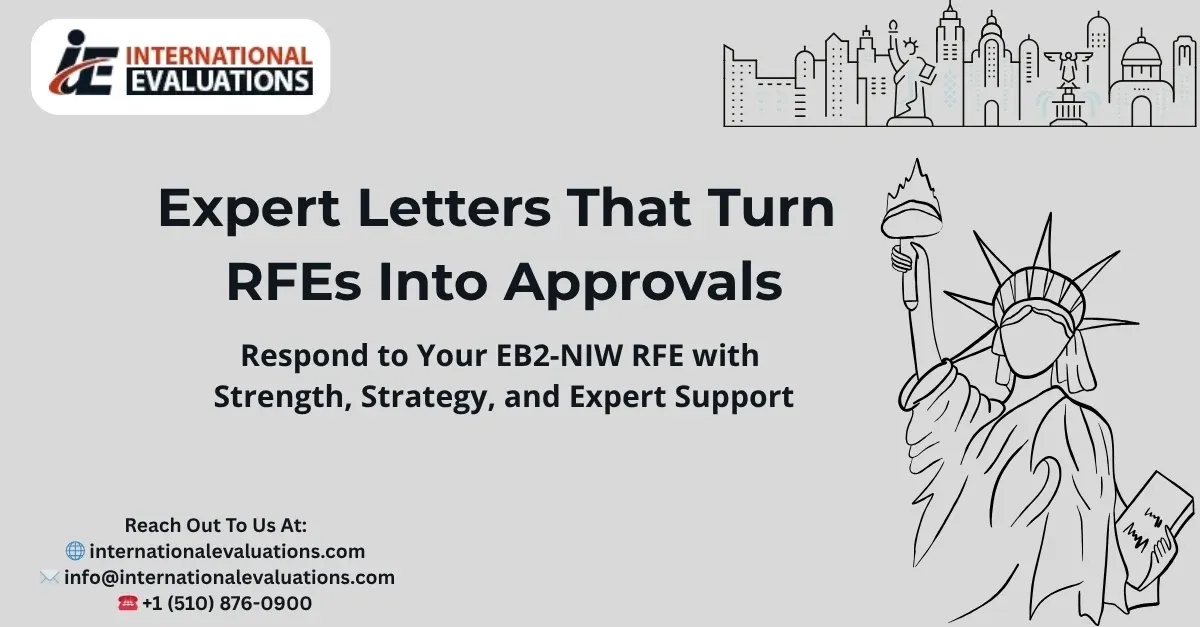Introduction
In a progressively globalized world, the demand for specialists who can browse worldwide borders has actually never ever been greater. As companies broaden their operations throughout continents, understanding the subtleties of work experience examination ends up being necessary for both companies and workers. This post digs deep into the intricacies of work experience evaluation, shedding light on its value in international mobility, the procedures involved, and how it converges with academic credential examination and other vital factors.
Understanding the Subtleties of Work Experience Evaluation for International Mobility
When we speak about work experience evaluation, we're basically going over a structured approach to evaluate a person's expert background, abilities, and proficiencies in a global context. This examination is essential for different stakeholders consisting of employers aiming to hire worldwide skill, people looking for work abroad, and universities providing programs to enhance employability.
Work experience examinations help bridge the space in between varied worldwide employment standards. They ensure that pertinent experiences are acknowledged and valued properly. This process frequently consists of an expert opinion letter which provides an in-depth analysis of a prospect's qualifications relative to market standards.
The Importance of Work Experience Evaluation in Global Mobility
Navigating International Standards
With different nations having actually differed requirements for examining expert experience, understanding these discrepancies becomes vital. An efficient work experience evaluation enables employers to line up prospects' backgrounds with local expectations.
Enhancing Employability
For task applicants going for chances abroad, providing a precise depiction of their work history can considerably boost their employability. Assessments performed by respectable international credential evaluation services use prospective employers a clear image of what candidates give the table.
Key Elements of Work Experience Evaluation
1. File Verification
Document verification is essential in developing the credibility of a prospect's work experience. Each document should be scrutinized completely to avoid scams or misrepresentation.
2. Ability Assessment
An extensive skill assessment assesses the competencies obtained during previous work. This may include technical abilities in addition to soft skills like communication or leadership abilities.

3. Professional Opinion Letter
A professional opinion letter plays an essential function in confirming work experiences. It works as a reliable endorsement from acknowledged specialists within specific markets or sectors.
Types of Credential Evaluations Related to Work Experience
1. Academic Credential Evaluation
This procedure examines educational qualifications gotten from organizations outside the country where one seeks employment or more education. Comprehending how academic credentials associate with work experiences is important as some functions require particular academic backgrounds.
2. Course-by-Course Credential Evaluation
For applicants who want to show their academic standing in addition to useful experiences, course-by-course assessments supply comprehensive breakdowns of courses taken, grades received, and equivalencies developed in relation to regional education systems.
3. Service Strategy Evaluation
While mainly relevant for business owners, business strategy examinations can intertwine with work experience assessments when individuals seek financing or partnerships based on their previous functions and achievements within specific industries.
The Process of Performing a Work Experience Evaluation
Conducting a thorough assessment involves a number of actions:
- Collecting necessary documents such as letters from previous companies, pay stubs, or job descriptions. Engaging with worldwide credential assessment services that concentrate on assessing foreign work experiences. Compiling findings into comprehensive reports that overview validated skills and experiences clearly.
Challenges in Work Experience Evaluation
Despite its value, there are obstacles associated with examining work experience internationally:
- Variability in job titles and responsibilities across different cultures can complicate comparisons. Inconsistencies in documents practices might result in troubles in validating claims made by candidates.
Best Practices for Reliable Work Experience Evaluation
To ensure precision and fairness in evaluations:
Establish clear guidelines regarding what makes up legitimate work experience. Engage certified critics who comprehend both regional and international market demands. Utilize technology-driven services for efficient information collection and analysis.Future Trends in Work Experience Evaluations
As globalization continues to develop:
- We expect increased use of artificial intelligence tools to streamline evaluations. More emphasis will likely be put on soft skills and versatility along with standard hard abilities due to changing labor force dynamics.
FAQs
Q1: What is a skilled viewpoint letter?
An expert opinion letter is a document provided by market professionals that confirms an individual's credentials or experiences according to market standards.
Q2: How does scholastic credential evaluation effect work experience?
Academic credential evaluations assist contextualize educational credentials versus regional expectations, enhancing understanding throughout work experience assessments.
Q3: Why do I require a course-by-course credential evaluation?
A course-by-course credential assessment provides comprehensive insights into your academic history, showing how your education matches your professional experiences.
Q4: Can my previous job title affect my work experience evaluation?
Yes! Task titles vary extensively across areas; for that reason it's necessary that evaluators think about obligations rather than titles alone when assessing qualifications.
Q5: What types of documents are required for work experience evaluations?
Normally required files include letters from previous companies detailing your role/responsibilities, pay stubs showing duration at each position, and any related accreditations made during employment.
Q6: How long does a normal work experience evaluation take?
The period can vary widely based upon intricacy however typically varies from several weeks up to 3 months depending on documentation availability and confirmation needs.
Conclusion
Understanding the subtleties of work experience examination is vital for navigating today's global workforce landscape effectively. By valuing the intricacies included-- ranging from documents verification through expert viewpoint letters-- it becomes clear that this procedure is not merely bureaucratic but deeply essential to ensuring that skill is recognized accurately across borders.
As companies increasingly worth diverse perspectives brought by global talent pools, those included-- be it job seekers or employers-- must remain educated about finest practices surrounding these examinations while likewise adjusting as patterns develop within https://emiliozfia104.iamarrows.com/credential-assessment-providers-bridging-the-gap-in-between-academics-and-professions this vibrant field.

By harnessing reputable resources such as scholastic credential evaluations and engaging with credible international credential assessment services, people can enhance their profiles substantially while companies can make educated hiring decisions lined up with their strategic objectives-- eventually cultivating development within our interconnected world economy.